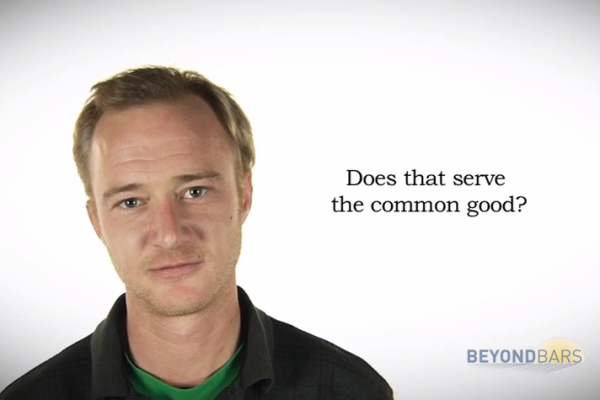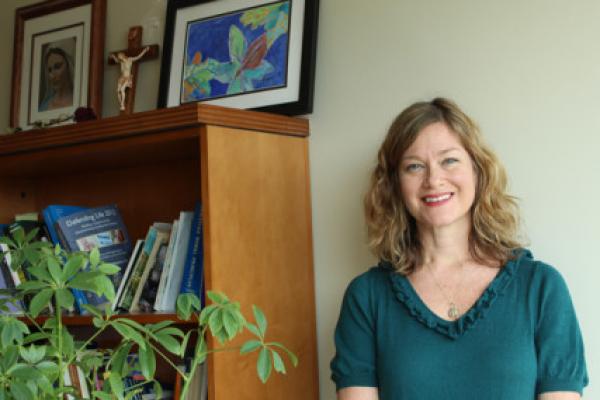The United States has the highest incarceration rate in the world — about 1.6 million people in 2010. Mass incarceration in our country is a problem, one that too often serves to line the pockets of for-profit prisons while tearing families apart and targeting people of color disproportionately.
Beyond Bars — a project to curb mass incarceration in the U.S. — produced the following video that puts faces to that problem. Watch the moving video below, and ask yourself the question: would putting them in prison serve the common good?
A study by the University of Southern California’s Center for the Study of Immigrant Integration used California as a microcosm to see how immigration reform would affect America. The study estimated that 7 percent of California residents were undocumented. In Los Angeles County the number jumped to 10 percent. Christian Science Monitor reports:
“What sticks out to me about this report is that it shows how many immigrants have been in the country more than 10 years that are not just migrants, and who have children born here who are naturalized citizens,” says Michael Moreland.
Read more here.
A few things will have to happen for the poverty reduction goal to be hit...India will have to up its game on both economic growth and the distribution of the benefits. As this chart shows, China has mostly run its leg of the relay – with economic growth that has lifted hundreds of millions from poverty and, almost on its own, put the world on trend to reach Kim’s goal.
View interactive charts here.
Conservatives have united around immigration reform. Over two dozen signed a statement supporting legislation to overhaul US immigration laws. They feel the current Senate legislation is a "importnat starting point." The Associated Press reports:
In a statement being released Thursday, the officials say: "Simply opposing immigration reform should not be the conservative response to this problem. We believe conservatives should be leading the way on this issue by supporting legislation that upholds conservative principles."
Read more here.
The Senate Judiciary Committee is holding a hearing at 9:30 a.m. to discuss the Gang of 8 immigration bill (S. 744). Aides say the hearing will focus on amendments to the bill that address border security.
American anti-abortion leaders will be in Rome on Sunday to participate in Italy’s third March for Life and lend their expertise to the nation’s small anti-abortion movement as it tries to learn from its American counterpart.
Jeanne Monahan, president of the March for Life Education and Defense Fund, and Lila Rose of Live Action will be among those who will march through central Rome on Sunday morning, from the Colosseum up to Castel Sant’Angelo, a few hundred meters from the Vatican.
While the annual March for Life in Washington — which celebrated its 40th anniversary in January — attracts hundreds of thousands of people and heavy media coverage, in Europe anti-abortion movements have often kept a lower profile and haven’t been able to shape social discourse as in the United States.
Polls regularly show high levels of support for abortion rights throughout Europe. A January poll by Eurispes found that 64 percent of Italians favor legalizing abortion pills.
In Italy, abortion is currently legal in hospitals up to the third month of pregnancy.
Soon after the Boston Marathon bombings, local Christian leaders stepped swiftly into the public eye, convening vigils and urging peaceful healing in the wake of senseless violence.
But their public voices have fallen mostly silent as noisy resistance grows to the prospect that suspected bomber Tamerlan Tsarnaev could be buried in local soil.
Cemeteries and even some mosques have refused to take his body. His city, Cambridge, has urged family members to bury him elsewhere. Republican U.S. Senate candidate Gabriel Gomez and local talk radio host Dan Rae want him dumped in the ocean, like Osama bin Laden. Clergy have largely kept mum.
“The only signs of people who are showing some sort of moral conscience are those few who stand with a card near the funeral home saying [burial] is a corporal work of mercy,” said James Keenan, a moral theologian at Boston College. “To say, ‘we won’t bury him’ makes us barbaric. It takes away mercy, the trademark of Christians. … I’m talking about this because somebody should.”


